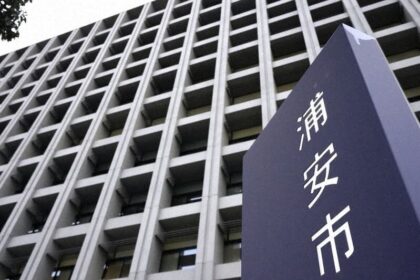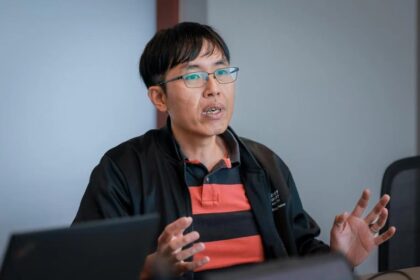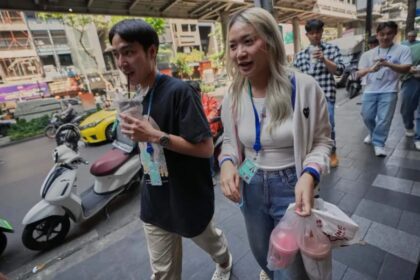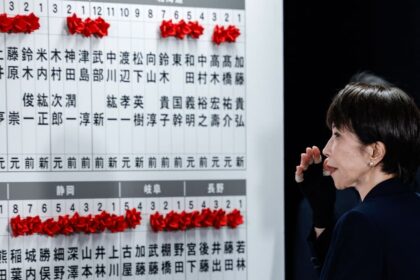A wake up call from Washington and London
One of the largest coordinated crackdowns on Southeast Asia’s cyber scamming industry has put a harsh spotlight on the ties between political power and criminal profit. In a joint move, the United States and the United Kingdom targeted a network centered on Cambodia’s Prince Group, chaired by Chen Zhi. The US Treasury sanctioned 146 individuals and entities, prosecutors unsealed indictments that detail online fraud, human trafficking and money laundering, and investigators seized 127,000 bitcoins worth roughly 14 billion dollars. British authorities also froze high end London real estate linked to the alleged network. The operation was designed to hit the financial backbone that converts digital theft into tangible wealth.
- A wake up call from Washington and London
- How did this industry take root
- Cambodia at the core
- Myanmar’s border towns and militia finance
- Laos special zones and selective enforcement
- The Philippines tests sustained enforcement
- Inside the scams and the money movement
- Who gets hurt and how states respond
- International response accelerates, gaps remain
- What could curb the industry
- The Bottom Line
The losses are vast and still growing. US officials say Americans were defrauded of more than 10 billion dollars in 2024, with investment and romance scams alone estimated at over 16 billion dollars. The broader global take runs into tens of billions every year. These numbers are the product of a regional marketplace for online fraud that matured over the last decade. What started as scattered call centers is now a transnational industry that recruits at scale, launders money through sophisticated payment chains and enjoys protection from powerful figures.
In the weeks since the US and UK actions, governments across Southeast Asia have signaled resolve. Raids have been staged, compounds have been inspected, and officials have vowed change. The problem is baked into politics and money. Scam operations are tied to local power brokers and elite business networks. They employ tens of thousands of workers, many of them trafficked, and they generate hard currency that lubricates patronage. Taking them down challenges the very systems that allow elites to rule and finance to flow.
How did this industry take root
The rise of cyber scamming in Southeast Asia reflects three forces that converged over time. Longstanding patronage politics can absorb new cash flows. Surges of Chinese gray capital after 2010 found receptive markets in casinos, real estate and special zones. Rapid adoption of digital payments and cryptocurrency made it easy to move illicit proceeds across borders. Each force existed on its own, but together they turned small scale grifts into a global fraud engine.
Patronage politics that absorb new cash flows
Across much of the region, power rests on personal authority and control over resources, not on strong institutions. Politicians rely on business allies, military intermediaries and local fixers to raise funds, deliver loyalty and manage disputes. These networks grew out of the way states were built, from colonial rule to Cold War conflicts and post conflict recovery. When new sources of income appear, whether legal or illicit, they are pulled into these systems. Online fraud did not create new politics. It slotted into existing patterns of rent extraction and protection.
Chinese gray capital after 2010
Inside China, anti corruption drives and tighter capital controls pushed unregistered money overseas. After 2012, investors sought safer places to park cash, and crackdowns on online gambling and cross border transfers accelerated that trend. Cambodia, Laos, Myanmar and the Philippines offered land, licenses and security to those who could pay. Casinos, industrial zones and real estate developments acted as conduits. Developers partnered with well connected elites who provided protection and official cover. When tourism collapsed during the pandemic, many of these sites were repurposed into scamming compounds. Workforces were replaced with trafficked labor recruited through deceptive job offers.
Crypto and digital payments made laundering faster
The industry thrives on fast, opaque money movement. Stolen funds are routed through mule accounts, converted to virtual currency, shuffled across wallets, mixed with other funds, and then reintroduced into banks or used to buy property. Over the counter brokers and loosely regulated exchanges play key roles. The same mobile apps that power legitimate commerce make it easy to move money in seconds. Instead of replacing old forms of corruption, these tools extended them, connecting rent seeking networks to global finance and technology.
Cambodia at the core
Cambodia sits at the center of this system. Over decades, the ruling Cambodian People’s Party fused state power with private business. Tycoons secured monopoly contracts and political protection, and politically connected families expanded their reach. When a national ban on online gambling took effect in 2019, the infrastructure of casinos and hotel projects did not vanish. It shifted. Compounds once built for gaming turned into centers for online fraud. Workers were recruited from across Asia, often through fake job ads, then coerced to scam targets worldwide.
These operations could not grow without protection from powerful actors. Properties used by scam bosses often sit on land controlled by politically connected businessmen. Foreign operators obtained citizenship and honors. Investigations stalled or quietly ended. The US and UK case against the Prince Group underscores how alleged criminal enterprises can intertwine with high finance, politics and elite networks. After the designations, a run on Prince Bank reportedly forced urgent assurances from the government. Thai authorities also moved against assets of influential figures with deep ties to Phnom Penh’s political order, increasing stress on the patronage system.
Official responses have been mixed. The US State Department’s 2024 Trafficking in Persons report kept Cambodia on Tier 3 and described widespread corruption and complicity in online scam operations. It noted that authorities often failed to screen victims, penalized trafficked workers for crimes they were coerced to commit and did not hold complicit officials to account. A major human rights investigation in 2025 found scamming compounds across Cambodia where survivors reported beatings, forced labor and even torture rooms. Raids often appeared superficial, rescuing a few workers while business continued as usual. Journalists and activists who documented abuses faced retaliation.
Questions around money laundering have widened. Blockchain analytics firms have tracked large flows of scam proceeds, and a payments platform with alleged ties to powerful families was blocked from the US financial system in late 2024. That action signaled a willingness to target financial rails that move illicit funds. It also exposed the gap between sanctioning private entities and confronting the political networks that enable them.
Myanmar’s border towns and militia finance
Myanmar’s scamming hubs grew from a patchwork of authority along the borders. Ethnic armed groups and pro military militias have long run their own administrations, collecting taxes, issuing permits and policing territory. Fraud operations joined narcotics, logging and other trades as revenue streams that buy weapons and recruits. Two places stand out. Shwe Kokko in Karen State, tied to the Yatai New City project, and KK Park near the Thai border. Investors built walled enclaves with their own security, power and telecoms. Thousands of trafficked workers were brought in to run fraud campaigns targeting victims worldwide.
Recent events show the mix of enforcement and evasion. The man accused by US and Chinese authorities of running a major operation at Shwe Kokko, She Zhijiang, was extradited to China in November 2025 after his arrest in Bangkok in 2022. Thai authorities, facing pressure and tourism concerns after high profile incidents, cut utilities to certain compounds, moved senior police and coordinated repatriation flights. Myanmar’s junta has claimed to shut some sites, but credible accounts suggest many crackdowns are managed. Bosses receive warnings and move operations. Workers escape in large numbers, but core networks shift a few miles down the road and reassemble.
Managed crackdowns, shifting hubs
The border economy rewards actors who can offer protection, and it punishes those who cannot. When one compound becomes too visible, another comes online. Local militias, border guards and intermediaries extract rent at each step. The result is a resilient ecosystem that adapts faster than law enforcement can move.
Laos special zones and selective enforcement
Laos, a single party state with weak domestic industries and heavy debts, has welcomed investment that consolidates political control and brings in foreign exchange. That climate created space for special zones where state authority is delegated to investors. The Golden Triangle Special Economic Zone in Bokeo province, run by Chinese businessman Zhao Wei, functions as a private enclave with its own casinos, security and internal economy. International sanctions have targeted the zone’s leadership in the past for trafficking and money laundering. Yet local recognition continued, including a state medal in 2024 that looked like an endorsement.
Authorities announced deadlines to dismantle online fraud factories and staged intermittent raids. Most actions disrupted low level staff while leaving ownership and core networks intact. After brief lulls, reports of new activity resurfaced. The pattern mirrors other parts of the region. Show of force at the edges, continuity at the core.
The Philippines tests sustained enforcement
The Philippines took a different path. The offshore gambling boom, known as POGO, created opportunities for cyber scamming, protected by local politicians who issued permits and discouraged investigations. Starting in 2023, high profile raids exposed trafficked workers and alleged official collusion. In Tarlac province, investigators tied a large compound to a municipal leadership network and brought charges. National authorities banned POGOs in 2024, then enacted the prohibition in law in 2025. Police and immigration agents staged repeated raids, prosecuted local officials and deported thousands of workers.
The crackdown has not erased the industry. Operators rebranded, slipped underground or shifted to new sites, sometimes with the same personnel and buildings. Still, sustained enforcement raised the cost of political protection and shut down significant operations. The Philippines shows how persistent policing and legal action can constrain a criminal economy even when it cannot be eliminated overnight.
Inside the scams and the money movement
The frauds are varied but share a common playbook. Workers are trained to build trust with targets on messaging apps and social platforms. They pose as bank staff, investment advisers or romantic partners. One of the most damaging schemes is known as pig butchering. The scammer invests time to build an emotional bond, shows fake profits on a sham platform, then pressures the victim to commit larger sums. When the money is in, the platform locks up withdrawals or vanishes. Variations include crypto investment schemes, impersonation of government officials and sextortion campaigns.
Money laundering is the engine that keeps the machine running. Funds hop between accounts in multiple countries, often in the names of recruits who are paid a small cut to act as money mules. Crypto wallets and mixers add layers of opacity. Over the counter traders convert tokens to cash. The proceeds buy real estate, vehicles and luxury goods, or flow into property markets in global financial centers. Each conversion point is an opportunity for law enforcement to identify patterns, but it requires fast cross border cooperation and access to data held by platforms and exchanges.
Who gets hurt and how states respond
Victims exist at both ends of the scheme. People around the world lose life savings, homes and retirement funds. Trafficked workers lose freedom, health and safety. Survivor accounts from compounds in Cambodia describe prison like conditions, beatings and forced labor to meet daily quotas. Some sites reportedly had rooms dedicated to torture, and deaths inside compounds have been documented. Rescues often freed small numbers, while others were moved to new sites or re trafficked.
Official reporting describes persistent gaps. The US State Department kept Cambodia on the lowest tier for anti trafficking performance in 2024, citing corruption and complicity, weak screening and failures to prosecute. After presenting the findings, the report summed up the official assessment in one stark phrase.
Before quoting the report directly, it is worth noting the context: Tier 3 means a government is failing to meet minimum standards and is not making significant efforts to do so. The language is blunt and leaves little room for ambiguity.
The Government of Cambodia does not fully meet the minimum standards for the elimination of trafficking and is not making significant efforts to do so.
Human rights researchers say the pattern is consistent. Investigations across dozens of Cambodian compounds found repeated abuses, scant protection for victims and limited accountability for those in charge. Journalists and advocates faced pressure for bringing abuses to light. These findings align with the broader picture documented by regional and international bodies that track online fraud, trafficking and forced labor.
International response accelerates, gaps remain
Law enforcement cooperation has ramped up. The US Justice Department launched a Scam Center Strike Force in November 2025 to investigate, disrupt and prosecute the most damaging schemes that are defrauding Americans at a multibillion dollar yearly pace. Sanctions against networks in Cambodia and Myanmar have multiplied. China has mounted rescues of its nationals and pursued extraditions, including the transfer of She Zhijiang from Thailand. Thailand, working with partners, cut power and telecom lines to some border compounds and moved against certain police officials.
Policy contradictions persist. Targeting individual tycoons and companies addresses symptoms while leaving enabling systems intact. Analysts argue that avoiding direct action against officials who provide protection or profit from scams misstates the problem as purely criminal when it is also political and economic. In a number of cases, governments have hosted or cooperated with figures whose networks were later targeted by sanctions, muddying the message. Meanwhile, propaganda campaigns and lobbying in foreign capitals complicate efforts to align policy with credible evidence.
Financial centers outside Southeast Asia remain critical. Banks, real estate markets and crypto service providers in Europe, North America and parts of Asia absorb illicit proceeds. Without tighter controls on beneficial ownership, stricter compliance for high risk payments and faster information sharing, enforcement inside Southeast Asia will push the problem around rather than reduce it.
What could curb the industry
Experience across the region points to a set of actions that are more likely to work if pursued together. Each one targets a different link in the chain that turns forced scams into clean money.
First, sanction and prosecute enablers as well as operators. That means building cases against officials who license, protect or profit from scam centers, and against the lawyers, brokers and shell companies that handle their money. Corruption and collusion should carry real costs that outweigh the benefits of protection.
Second, attack payment rails. Regulators should raise standards for crypto exchanges, over the counter brokers and high risk payment processors. Require stronger know your customer controls, monitor mixers and mandate record keeping that facilitates asset tracing. High risk platforms that refuse to comply should be cut off from banking networks.
Third, clean up property markets. Enforce beneficial ownership transparency, restrict anonymous purchases in high risk categories and mandate enhanced due diligence for buyers with exposure to sanctioned jurisdictions or entities. Close the gate that turns stolen money into condos, warehouses and trophy real estate.
Fourth, protect people trapped inside compounds. Make victim identification a priority, stop penalizing trafficked workers for crimes they were forced to commit and guarantee access to services regardless of nationality or gender. Invest in shelters, legal aid and safe return programs. Survivors are key witnesses who can map hierarchies and identify financial patterns.
Fifth, scale cross border investigations. Build joint teams that include cyber specialists, financial intelligence units and prosecutors who can act quickly on shared data. Use asset seizures to disrupt liquidity, and repurpose proceeds to fund victim support and further investigations. Where compounds sit on borders, link local enforcement to regional task forces. The aim is to reduce the time between detection and disruption.
Finally, keep public pressure on. Publish credible data, name entities that launder proceeds and support independent media and civil society who document abuses. The industry flourishes in darkness. Transparency makes protection costlier and speeds up reform.
The Bottom Line
- US and UK actions targeted 146 people and entities tied to Cambodia’s Prince Group, with 127,000 bitcoins seized and London properties frozen.
- Americans lost at least 10 billion dollars to online fraud in 2024, with investment and romance scams estimated at more than 16 billion dollars.
- Scam operations expanded through patronage politics, surges of Chinese gray capital and fast digital payment systems.
- Cambodia remains a central hub, with persistent allegations of official complicity and documented abuses in compounds.
- Myanmar’s hubs in Shwe Kokko and KK Park are tied to militia finance and adapt to managed crackdowns.
- Laos’s Golden Triangle zone operates as a protected enclave where enforcement has been selective.
- The Philippines has shown sustained enforcement, banning POGOs and prosecuting local officials, though operators have gone underground.
- The US Justice Department established a Scam Center Strike Force, and sanctions are expanding, but enabling networks still face limited pressure.
- Effective disruption requires targeting enablers, tightening crypto and property controls, improving victim protection and scaling cross border investigations.












